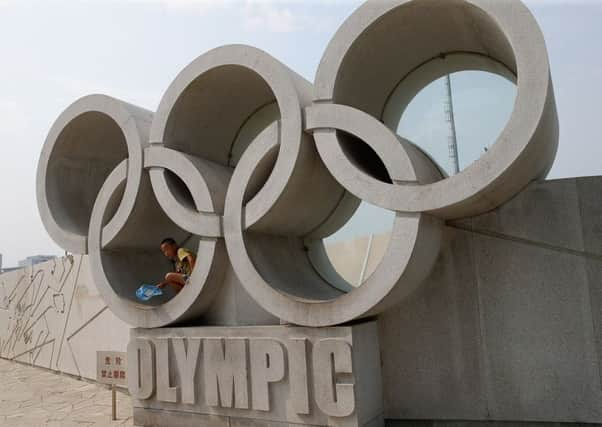Crown jewels of broadcasting could be lost to BBC


Beijing has been announced as the host for the 2022 Winter Olympics, and will be the first city ever to host both summer and winter Olympic Games. However, the Beijing Games will also be notable in the UK for another reason.
The rights to future Olympic Games coverage across Europe have recently been won by Discovery, the new parent company of Eurosport. For the UK, this means that, for the first time since 1960, the Olympic Games may not be broadcast on the BBC from 2022.
Advertisement
Hide AdAdvertisement
Hide AdThe BBC has lost the rights to many significant sporting events in recent years but for major events like the Olympic Games, it had every reason to expect its monopoly to continue.
Current UK legislation categorises certain events to be of “national interest” and are subject to a regime overseen by Ofcom which, in effect, protects them to be shown live on certain qualifying channels (presently BBC1, BBC2, Channel 3 (ITV1), Channel 4 and Channel 5 (Five)). This covers the “A List” events, such as the Olympic Games, the Fifa World Cup and Wimbledon Finals. There is also a “B List” with less strict controls (effectively requiring reasonable highlights to be shown on qualifying channels), including the Commonwealth Games, Six Nations Rugby and Ryder Cup.
The aim of this legislation is to ensure that important sporting events are made available to all, even those who may not be able to afford a subscription service. That is why qualifying channels must be free-to-air and have coverage of 95 per cent of the population.
However, this objective has to be balanced against the potential downsides of the listing system. The distortion of competition it causes leads to a reduced level of revenue from rights deals. This is stark when one considers that only BBC and ITV tend to bid for such rights and quite often they prepare a joint bid for large events such as the Fifa World Cup.
Funding received from broadcast rights, especially for large international tournaments such as the Olympics, is often used to fund grassroots sports all over the world. It’s therefore not surprising that sports bodies protest when tournaments are given the great “honour” of being considered for listing.
It has the feel of an antiquated way of doing things in the current climate, but this is not an approach unique to the UK – although other jurisdictions prioritise different events. Austria includes the Vienna Opera Ball, Italy the San Remo Music Festival, while in Denmark, the World Handball Championships take precedence.
So, what does this mean for Eurosport’s rights for the 2022 Olympics?
The most probable scenario at present is that the rights will be sub-licensed to the BBC. However, this would almost certainly not be the full package of rights, such as online services, which would presumably be retained by Eurosport to be rolled out on a pan-European level – a big change to our familiar “all platforms” experience from the BBC.
Advertisement
Hide AdAdvertisement
Hide AdHowever, there is some potential scope for an alternative route, especially given the long overdue review of the listing legislation and code. The changing face of broadcasting consumption – digital, online and mobile – together with growing financial pressures at the BBC, might just be creating a perfect storm for reform of the listing system, or perhaps its ultimate demise.
The scrapping of the listing system altogether seems unlikely. However, since digitisation, many Freeview channels have in excess of 90 per cent coverage in the UK, so a small change in the law could open the range of competitors significantly. The UK’s threshold of 95 per cent coverage is the highest in the EU, so a small decrease would not be unprecedented. The monopoly of the five historically terrestrial channels could easily come under pressure. Therefore, the creation of a new free-to-air channel by Discovery appearing over the next seven years to house future Olympics is not unrealistic. It would certainly be in its interests to lobby for this. When you sit down to watch the Rio Games next summer, take a minute to consider just how different our consumption of this event might change a further six years hence.
The outcome of this saga might not be as simple as it seems.
• Alison Marshall is a partner with CCW Business Lawyers Ltd: www.ccwlegal.co.uk